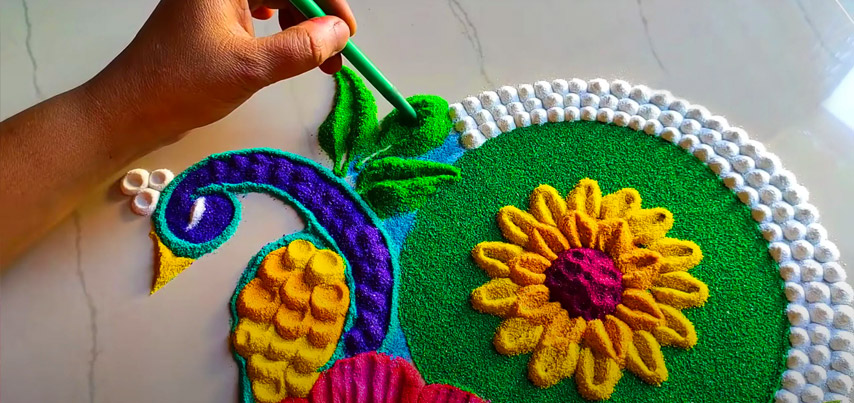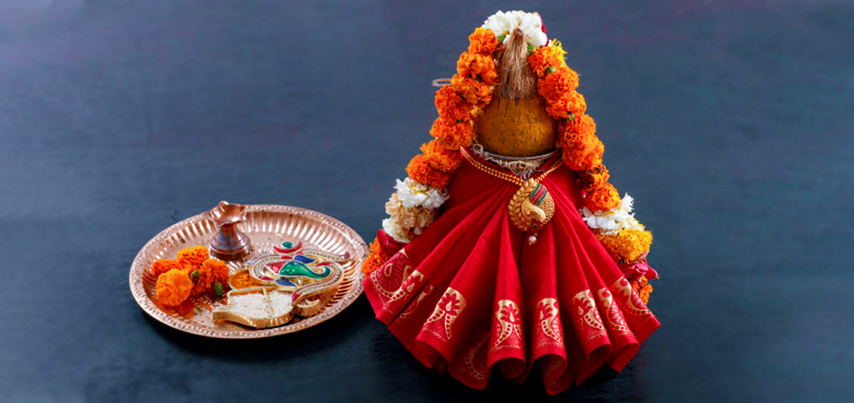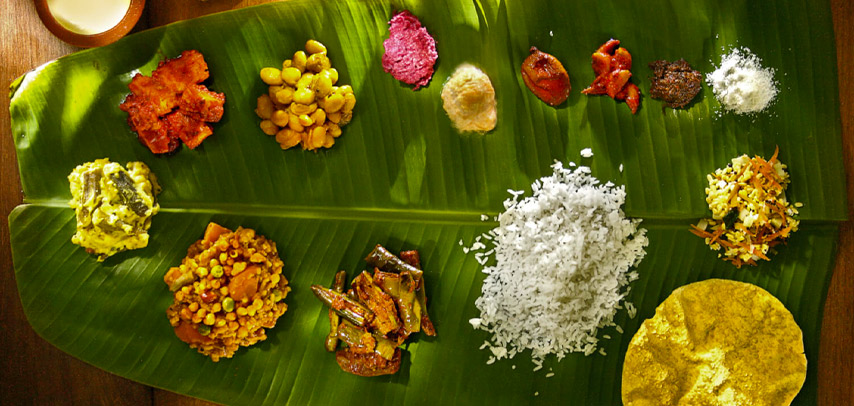Fête d'Ugadi à l'Ile Maurice

 Histoire de l’île Maurice
Histoire de l’île Maurice
 Langues à l'île Maurice
Langues à l'île Maurice
 Aéroport International SSR - île Maurice
Aéroport International SSR - île Maurice
 Le Pays des Dodos
Le Pays des Dodos
 Industrie Touristique
Industrie Touristique
 Système Monétaire Local
Système Monétaire Local
 Politique de Visa
Politique de Visa
 Guide des Villes et Sites Touristiques
Guide des Villes et Sites Touristiques
 Plages de l'île Maurice
Plages de l'île Maurice
 Séga Mauricien : Musique, Danse et Instruments
Séga Mauricien : Musique, Danse et Instruments
 Le Shopping à l'île Maurice
Le Shopping à l'île Maurice
 Les Incontournables de l'île Maurice
Les Incontournables de l'île Maurice
 Carte Topographique
Carte Topographique
 Carte Routière
Carte Routière
 Carte Satellite
Carte Satellite
 Carte des Hôpitaux et Cliniques
Carte des Hôpitaux et Cliniques
 Carte des Districts
Carte des Districts
 Carte des Activités et Excursions
Carte des Activités et Excursions
 Carte des Hôtels
Carte des Hôtels
 Carte des Hôpitaux et Cliniques
Carte des Hôpitaux et Cliniques
 Carte de Localisation
Carte de Localisation
 Cartes de l’île Maurice
Cartes de l’île Maurice
 Meilleure Période pour Visiter l'île
Meilleure Période pour Visiter l'île
 Géographie et Dépendances de Maurice
Géographie et Dépendances de Maurice
 Tout Savoir sur Maurice
Tout Savoir sur Maurice
 Excursions d'Une Journée (Shopping, Visites Guidées ou Personnalisées)
Excursions d'Une Journée (Shopping, Visites Guidées ou Personnalisées)
 Galerie Vidéo de l'île Maurice
Galerie Vidéo de l'île Maurice
 Meilleurs Hébergements à l'île Maurice
Meilleurs Hébergements à l'île Maurice
 Les Endroits Incontournables de l'île Maurice
Les Endroits Incontournables de l'île Maurice
 Où se trouve l'île Maurice?
Où se trouve l'île Maurice?
 Conseils Voyage à l'île Maurice
Conseils Voyage à l'île Maurice
 Où séjourner à l'Île Maurice
Où séjourner à l'Île Maurice
 Street Food à Maurice (avec recettes)
Street Food à Maurice (avec recettes)
 Festivals les plus Populaires à l'île Maurice
Festivals les plus Populaires à l'île Maurice
 Procédures Médicales et Santé
Procédures Médicales et Santé
 Ecotourisme à l'Île Maurice
Ecotourisme à l'Île Maurice
 Culture Mauricienne - Sports, Cuisine, Festivals et autres
Culture Mauricienne - Sports, Cuisine, Festivals et autres
 Conseils de Voyage et de Sécurité à l'Île Maurice
Conseils de Voyage et de Sécurité à l'Île Maurice

 Randonnée et Trekking
Randonnée et Trekking
 Répertoire des Casinos
Répertoire des Casinos
 Excursions Maritimes Incontournables à Maurice
Excursions Maritimes Incontournables à Maurice
 Plongée Sous-marine à Maurice
Plongée Sous-marine à Maurice
 L'île Maurice - Une Destination de Choix pour la Pêche
L'île Maurice - Une Destination de Choix pour la Pêche
 Meilleurs Hébergements à l'île Maurice
Meilleurs Hébergements à l'île Maurice
 Les Endroits Incontournables de l'île Maurice
Les Endroits Incontournables de l'île Maurice
 Visite et Activités à Casela Nature Parks
Visite et Activités à Casela Nature Parks
 Volcan de Trou aux Cerfs (endormi)
Volcan de Trou aux Cerfs (endormi)
 Rochester Falls - Célèbre Cascade à l'île Maurice
Rochester Falls - Célèbre Cascade à l'île Maurice
 Cascades de l'île Maurice
Cascades de l'île Maurice
 Découvrir Le Morne Brabant
Découvrir Le Morne Brabant
 Domaine de La Vieille Cheminée
Domaine de La Vieille Cheminée
 Jardin Botanique SSR
Jardin Botanique SSR
 Château à l'île Maurice - Château de Labourdonnais
Château à l'île Maurice - Château de Labourdonnais
 Eureka - La Maison Créole
Eureka - La Maison Créole
 Black River Gorges National Park
Black River Gorges National Park
 Montagne la plus haute de l'île Maurice
Montagne la plus haute de l'île Maurice
 Montagne Le Pouce
Montagne Le Pouce
 La Route du Thé à île Maurice - Le Domaine de Bois Chéri
La Route du Thé à île Maurice - Le Domaine de Bois Chéri
 Domaine de Saint Aubin - Sucrière Historique
Domaine de Saint Aubin - Sucrière Historique
 Domaine des Aubineaux - Maison de Style Colonial Français
Domaine des Aubineaux - Maison de Style Colonial Français
 Découvrez nos Cascades
Découvrez nos Cascades
 Marchés de l'Île Maurice
Marchés de l'Île Maurice
 Parcs Naturels et d'Aventure
Parcs Naturels et d'Aventure
 Les Activités Aquatiques à Maurice
Les Activités Aquatiques à Maurice
 Eglises a l'Île Maurice
Eglises a l'Île Maurice
 Temples Hindous et Tamouls
Temples Hindous et Tamouls
 Points de Vue à Couper le Souffle à l'île Maurice
Points de Vue à Couper le Souffle à l'île Maurice
 10 Plus Belles Montagnes
10 Plus Belles Montagnes
 Rivières de l'île Maurice
Rivières de l'île Maurice
 Street Food à Maurice (avec recettes)
Street Food à Maurice (avec recettes)
 Top 10 des Musées de l'île Maurice
Top 10 des Musées de l'île Maurice
 Lodges en Pleine Nature
Lodges en Pleine Nature
 Escapades sur les Îlots
Escapades sur les Îlots
 Activités Amusantes a Faire en Famille
Activités Amusantes a Faire en Famille
 Excursions d'Une Journée en Bateau et Visites d'Îlots
Excursions d'Une Journée en Bateau et Visites d'Îlots
 Top 10 Des Adresses Shopping
Top 10 Des Adresses Shopping
 Offres VIP et de Prestige
Offres VIP et de Prestige
 Appartements Indépendants
Appartements Indépendants
 Meilleures rencontres avec des animaux à l'île Maurice
Meilleures rencontres avec des animaux à l'île Maurice
 Sports Nautiques Incontournables
Sports Nautiques Incontournables
 Golf au Paradis
Golf au Paradis
 Excursions et Forfaits Touristiques
Excursions et Forfaits Touristiques
 Destination de Plongée Sous-Marine
Destination de Plongée Sous-Marine

 Randonnée et Trekking
Randonnée et Trekking
 Cours de Plongée PADI et CMAS
Cours de Plongée PADI et CMAS
 Excursions Maritimes Incontournables à Maurice
Excursions Maritimes Incontournables à Maurice
 Plongée Sous-marine à Maurice
Plongée Sous-marine à Maurice
 Excursions à l'île Maurice (120+ options)
Excursions à l'île Maurice (120+ options)
 Incontournables Excursions a l'Île Maurice
Incontournables Excursions a l'Île Maurice
 Tours Aériens à l'île Maurice
Tours Aériens à l'île Maurice
 Activités Nautiques et Aquatiques
Activités Nautiques et Aquatiques
 Guide des Villes et Sites Touristiques
Guide des Villes et Sites Touristiques
 Hôtels Avec Golf à Maurice
Hôtels Avec Golf à Maurice
 Explorations Sous-Marines a l'Île Maurice
Explorations Sous-Marines a l'Île Maurice
 Croisières en Catamaran, Yachts, Speed Boats et autres
Croisières en Catamaran, Yachts, Speed Boats et autres
 île Aux Cerfs, île Maurice (Tour de l'île)
île Aux Cerfs, île Maurice (Tour de l'île)
 Excursions d'Une Journée (Shopping, Visites Guidées ou Personnalisées)
Excursions d'Une Journée (Shopping, Visites Guidées ou Personnalisées)
 Croisières en Bateau
Croisières en Bateau
 Croisières Nocturnes en Catamaran
Croisières Nocturnes en Catamaran
 La Vanille Nature Park (Réserve de Tortues Géantes et de Crocodiles)
La Vanille Nature Park (Réserve de Tortues Géantes et de Crocodiles)
 L'île Maurice - Une Destination de Rêve
L'île Maurice - Une Destination de Rêve
 Des Vacances avec vos Enfants?
Des Vacances avec vos Enfants?
 L'Expérience Marine Incontournable de l'île Maurice
L'Expérience Marine Incontournable de l'île Maurice

 Cours de Plongée PADI et CMAS
Cours de Plongée PADI et CMAS
 Plongée Sous-marine à Maurice
Plongée Sous-marine à Maurice
 Excursions à l'île Maurice (120+ options)
Excursions à l'île Maurice (120+ options)
 Incontournables Excursions a l'Île Maurice
Incontournables Excursions a l'Île Maurice
 Tours Aériens à l'île Maurice
Tours Aériens à l'île Maurice
 Hôtels Avec Golf à Maurice
Hôtels Avec Golf à Maurice
 Explorations Sous-Marines a l'Île Maurice
Explorations Sous-Marines a l'Île Maurice
 Croisières en Catamaran, Yachts, Speed Boats et autres
Croisières en Catamaran, Yachts, Speed Boats et autres
 île Aux Cerfs, île Maurice (Tour de l'île)
île Aux Cerfs, île Maurice (Tour de l'île)
 Excursions d'Une Journée (Shopping, Visites Guidées ou Personnalisées)
Excursions d'Une Journée (Shopping, Visites Guidées ou Personnalisées)
 Croisières en Bateau
Croisières en Bateau
 Croisières Nocturnes en Catamaran
Croisières Nocturnes en Catamaran
 Découverte du Monde Sous-Marin
Découverte du Monde Sous-Marin
 Vol et Activités Aériennes
Vol et Activités Aériennes
 Croisières en Catamaran
Croisières en Catamaran
 Activités Uniques à Essayer à l'île Maurice
Activités Uniques à Essayer à l'île Maurice
 Activités Romantiques à l'île Maurice
Activités Romantiques à l'île Maurice
 Cascades et Montagnes de l’île Maurice
Cascades et Montagnes de l’île Maurice
 Activités en Intérieur pour les Jours de Pluie
Activités en Intérieur pour les Jours de Pluie
 10 Meilleures Activités à Sensations Fortes et Extrêmes à l'île Maurice
10 Meilleures Activités à Sensations Fortes et Extrêmes à l'île Maurice
 Activités Nocturnes l'île Maurice
Activités Nocturnes l'île Maurice
 Les Activités Incontournables de l'île Maurice
Les Activités Incontournables de l'île Maurice
 Activités dans le Nord de l'île Maurice
Activités dans le Nord de l'île Maurice
 Cascade Sous-Marine de l'île Maurice : Une illusion?
Cascade Sous-Marine de l'île Maurice : Une illusion?
 Parcs Animaliers de l'île Maurice
Parcs Animaliers de l'île Maurice
 Des Vacances avec vos Enfants?
Des Vacances avec vos Enfants?

 Visite et Activités à Casela Nature Parks
Visite et Activités à Casela Nature Parks
 Volcan de Trou aux Cerfs (endormi)
Volcan de Trou aux Cerfs (endormi)
 Rochester Falls - Célèbre Cascade à l'île Maurice
Rochester Falls - Célèbre Cascade à l'île Maurice
 Cascades de l'île Maurice
Cascades de l'île Maurice
 Découvrir Le Morne Brabant
Découvrir Le Morne Brabant
 La Vanille Nature Park (Réserve de Tortues Géantes et de Crocodiles)
La Vanille Nature Park (Réserve de Tortues Géantes et de Crocodiles)
 Black River Gorges National Park
Black River Gorges National Park
 Montagne la plus haute de l'île Maurice
Montagne la plus haute de l'île Maurice
 Montagne Le Pouce
Montagne Le Pouce
 Parcs Naturels et d'Aventure
Parcs Naturels et d'Aventure
 10 Plus Belles Montagnes
10 Plus Belles Montagnes
 Rivières de l'île Maurice
Rivières de l'île Maurice
 Cascade Sous-Marine de l'île Maurice : Une illusion?
Cascade Sous-Marine de l'île Maurice : Une illusion?
 Parcs Animaliers de l'île Maurice
Parcs Animaliers de l'île Maurice
 Les Tunnels de Lave à l'île Maurice
Les Tunnels de Lave à l'île Maurice

 Musée Blue Penny
Musée Blue Penny
 Ganga Talao (Grand Bassin)
Ganga Talao (Grand Bassin)
 Domaine de La Vieille Cheminée
Domaine de La Vieille Cheminée
 Jardin Botanique SSR
Jardin Botanique SSR
 Site Historique - Aapravasi Ghat
Site Historique - Aapravasi Ghat
 Château à l'île Maurice - Château de Labourdonnais
Château à l'île Maurice - Château de Labourdonnais
 Eureka - La Maison Créole
Eureka - La Maison Créole
 Fort de la Citadelle (Fort Adelaide)
Fort de la Citadelle (Fort Adelaide)
 Musée de la Poste Mauricienne
Musée de la Poste Mauricienne
 Musée de la Tour Martello
Musée de la Tour Martello
 Musée de l'Immigration Indienne
Musée de l'Immigration Indienne
 Musée Naval et Historique de Mahébourg
Musée Naval et Historique de Mahébourg
 La Route du Thé à île Maurice - Le Domaine de Bois Chéri
La Route du Thé à île Maurice - Le Domaine de Bois Chéri
 Domaine de Saint Aubin - Sucrière Historique
Domaine de Saint Aubin - Sucrière Historique
 Domaine des Aubineaux - Maison de Style Colonial Français
Domaine des Aubineaux - Maison de Style Colonial Français
 Temples Hindous et Tamouls
Temples Hindous et Tamouls
 Sites Historiques et Patrimoniaux
Sites Historiques et Patrimoniaux
 Sites Historiques de l'île Maurice
Sites Historiques de l'île Maurice
 Arts & Événements Culturels à l'île Maurice
Arts & Événements Culturels à l'île Maurice

 Guide Météorologique et Climatique de l'île Maurice
Guide Météorologique et Climatique de l'île Maurice
 Températures à l'Ile Maurice
Températures à l'Ile Maurice
 Les Cyclones à l'île Maurice
Les Cyclones à l'île Maurice
 Meilleure Période pour Visiter l'île
Meilleure Période pour Visiter l'île
 Températures et Conditions de la Mer
Températures et Conditions de la Mer
 Alizés de l'île Maurice : A Quoi S'attendre
Alizés de l'île Maurice : A Quoi S'attendre
 Guide des Heures d'Ensoleillement
Guide des Heures d'Ensoleillement
 Précipitations à l'île Maurice
Précipitations à l'île Maurice
 Prévisions Météo : Dernières Actualités
Prévisions Météo : Dernières Actualités

 Jours Fériés Nationaux et Festivals à l'île Maurice
Jours Fériés Nationaux et Festivals à l'île Maurice
 Divali - le Festival des Lumières
Divali - le Festival des Lumières
 Festival de Maha Shivaratri
Festival de Maha Shivaratri
 Festival de Thaipoosam Cavadee
Festival de Thaipoosam Cavadee
 Traditions, Cuisines et Festivités à Maurice
Traditions, Cuisines et Festivités à Maurice
 Événements et festivals à Maurice
Événements et festivals à Maurice
 Père Laval île Maurice
Père Laval île Maurice
 Festival d'Ugadi
Festival d'Ugadi
 L'Aïd-Al-Fitr à l'île Maurice
L'Aïd-Al-Fitr à l'île Maurice
 Festivals les plus Populaires à l'île Maurice
Festivals les plus Populaires à l'île Maurice
 Culture Mauricienne - Sports, Cuisine, Festivals et autres
Culture Mauricienne - Sports, Cuisine, Festivals et autres

 Le Village de Chamarel - île Maurice
Le Village de Chamarel - île Maurice
 Port Louis - La capitale de l'Ile Maurice
Port Louis - La capitale de l'Ile Maurice
 Le nord de L’ile Maurice
Le nord de L’ile Maurice
 Flic en Flac
Flic en Flac
 Ebene Cybercity
Ebene Cybercity
 Belle Mare
Belle Mare
 Cap Malheureux
Cap Malheureux
 Bel Ombre
Bel Ombre
 Grand Gaube
Grand Gaube
 Albion
Albion
 Musées, marchés et attractions principales
Musées, marchés et attractions principales
 Trou d’Eau Douce
Trou d’Eau Douce
 Trou aux Biches
Trou aux Biches
 Curepipe
Curepipe
 Tamarin
Tamarin
 Péreybère
Péreybère
 Les Merveilles Naturelles Qui Vous Émerveilleront
Les Merveilles Naturelles Qui Vous Émerveilleront
 Blue Bay
Blue Bay
 Goodlands
Goodlands
 Pointe aux Canonniers
Pointe aux Canonniers
 Balaclava
Balaclava
 Moka
Moka
 Quatre Bornes
Quatre Bornes
 Marchés de l'Île Maurice
Marchés de l'Île Maurice
 Mont Choisy Mauritius
Mont Choisy Mauritius
 Le Morne Mauritius
Le Morne Mauritius
Voir plus
Découvrez Comment la fête de l'Ugadi est célébrée à l'île Maurice
Ugadi est le Nouvel An hindou, marquant le début du calendrier lunaire hindou. Avant le festival et les célébrations, les familles hindoues procèdent à un grand nettoyage de leur maison, balayant et lavant chaque recoin. Durant cette période, beaucoup prient pour la santé et la prospérité afin de démarrer la nouvelle année et ce nouveau cycle sur une note positive. Le festival se déroule généralement en mars ou avril.

Histoire
Selon la légende, Ugadi commémore la naissance de Brahma, le Seigneur Dieu de l'Univers, et la mort de Krishna, l'avatar ou incarnation humaine de Vishnu, une divinité hindoue, en 3101 avant J.-C. Cet événement symbolise la fin de la période Dvapara et le début de l'ère Kali. C’est aussi durant cette période que Salivahana a établi son empire en 78 après J.-C.
L'ancienne tradition de plonger la tête dans de l'huile, notamment de l'huile de coco, et de décorer les maisons avec des feuilles de manguier provient de la croyance selon laquelle les dieux hindous Ganesha et Kartik appréciaient particulièrement cet arbre fruitier.

La Tradition à Maurice
Étant une fête religieuse, Ugadi est associée à de nombreuses coutumes religieuses qui se sont mêlées aux traditions mauriciennes. Divers spectacles musicaux et culturels sont organisés durant cette période, avec, entre autres, la préparation de mets traditionnels et de plats populaires associés à la fête.
Le rituel de purification, réalisé avant l’aube le samedi matin, est un rite ancien appelé Mangala Snaanam. Ce rituel consiste à appliquer de l'huile sur la peau,puis à se frotter avec une pâte de « boue » faite de céréales hydratées. Ce rituel, ainsi que d’autres pratiques, marque le début des célébrations et rend hommage à Brahma, le dieu hindou de l'univers.

Le Patchadi, un plat typique à base de tamarin, de mangues vertes, de sel, de piment et de fleurs de lilas, est présenté en offrande aux images des dieux. Les mantras, véritables prières chantées, sont une forme de dévotion courante chez les hindous, récités dans les temples ou diffusés à la télévision.





















































